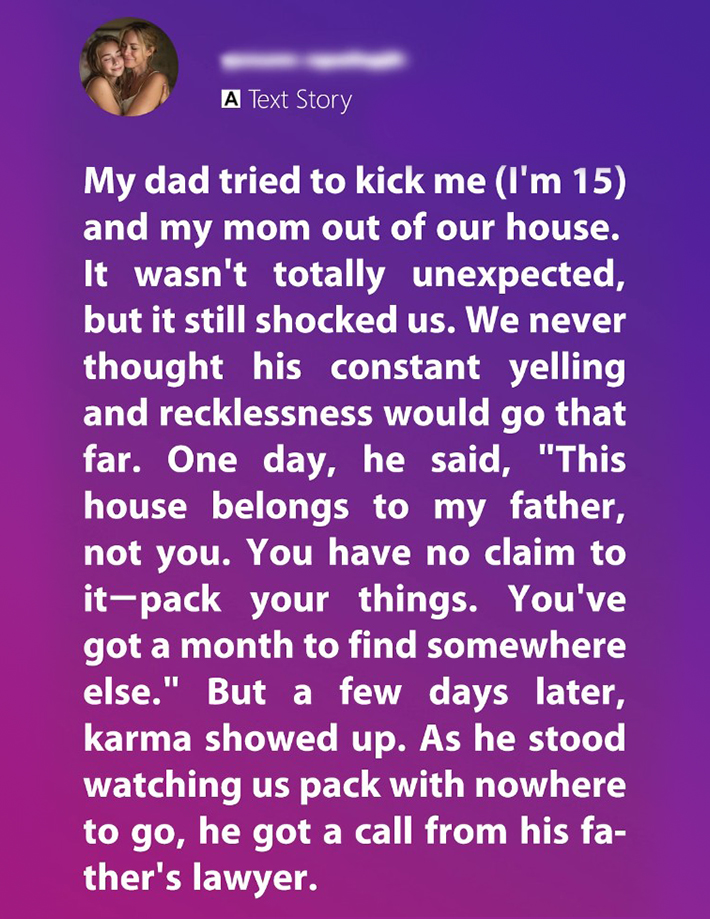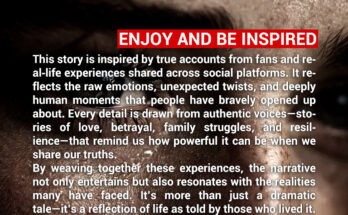My father was a man of charm in public and cruelty in private. At home, he was cold, dismissive, and emotionally abusive. My mother, Caroline, spent years trying to hold our family together, enduring his neglect and infidelity. I was fifteen when he finally snapped and told us to pack our things and leave. He claimed the house was his, that we didn’t belong.
But the truth was, the house belonged to my grandfather—who was terminally ill and being cared for solely by my mother. My father never lifted a finger for him.
Weeks later, my grandfather passed away. We braced for homelessness. At the will reading, my father strutted in, expecting to inherit everything. Instead, the lawyer revealed that the house had been left to me. Grandpa had seen through his son’s facade and chose to reward the one person who showed true decency.
My father exploded, demanding revisions and threatening legal action. But the deed had already been transferred. The house was mine.
That night, my mother filed for divorce. For the first time, she looked calm, focused, and free. We laughed, ordered Chinese food, and toasted with ginger ale. It was our quiet celebration of survival.

My father refused to leave, sulking in the living room. But we were done waiting. I stood beside my mother and told him plainly: “You’re not welcome here anymore.”
Karma didn’t just strike—it delivered justice with precision. The man who tried to cast us out was the one left behind.
